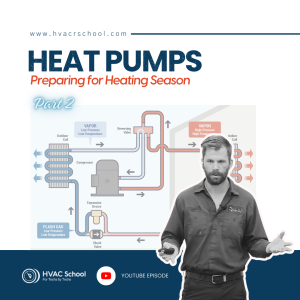BACK
 Understand Heat Pumps
Understand Heat Pumps
 Heat Pump Defrost Troubleshooting Tips
Heat Pump Defrost Troubleshooting Tips
 Heat Pump Defrost Boards and W2
Heat Pump Defrost Boards and W2
 Defrost Termination & Fail-Safe
Defrost Termination & Fail-Safe
 Why (and When) Do We Need Defrost?
Why (and When) Do We Need Defrost?
 Refrigeration Gas Defrost
Refrigeration Gas Defrost
 Heat Pump Defrost Sensor vs. Thermostat
Heat Pump Defrost Sensor vs. Thermostat
 Defrost Time & Temperature
Defrost Time & Temperature
 Walk-In Cooler Defrost
Walk-In Cooler Defrost
 Commercial Refrigeration for A/C Techs w/ Dick Wirz (Podcast)
Commercial Refrigeration for A/C Techs w/ Dick Wirz (Podcast)
 Heat Pumps, Reversing Valves, and Defrost Podcast
Heat Pumps, Reversing Valves, and Defrost Podcast
 Refrigeration Tips For A/C Techs
Refrigeration Tips For A/C Techs
#Defrost
Tech Tips:

My goal in this tech tip is to help those who struggle to understand heat pumps get their heads around them as quickly as possible and understand some of the things a tech needs to know about them. The basic idea of a heat pump is to use the compression refrigeration cycle to move heat […]
Read more
We’ve entered that season of service calls for “smoking heat pumps,” and I figured now is as good a time as any to share a few quick tips for troubleshooting defrost. Of course, the “smoking heat pump” calls can be solved over the phone with a quick explanation of normal defrost conditions—as can the service […]
Read more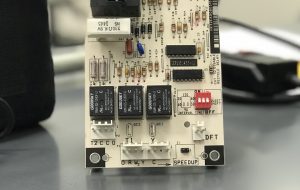
If you are used to simple, straight-cool split systems, you know that the low voltage to the outdoor unit is usually VERY simple. In many cases, there's just a Y (contactor power) and a C (common) connected to the outdoor unit. When the condensing unit controls are strictly two-wire low voltage, there is no continuous […]
Read more
As an A/C tech, I can sometimes get the terms “defrost termination” and “defrost fail-safe” mixed up because they sound pretty similar. Before we cover these terms, let's set the basic defrost groundwork for refrigeration (coolers and freezers). Defrost is accomplished in one of a few ways; these first two only apply to “coolers” where […]
Read more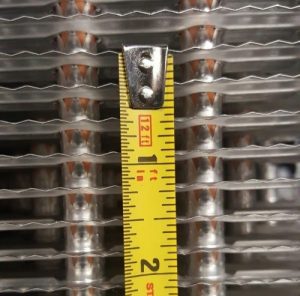
Why Defrost? Let's start with the basics and move on from there. Defrost is necessary when the coil temperature drops below 32°F. Defrost can be as simple as turning the compressor off for a period of time or as elaborate as reversing the flow of refrigerant for the whole system or just parts of the […]
Read more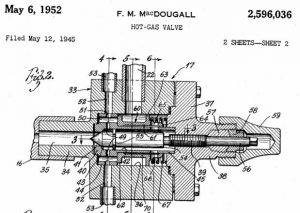
Let's take a deeper dive into the magic that is gas defrost. Most techs who are familiar with heat pumps understand the basics of a gas defrost. When we apply this strategy to a larger system where we're only reversing a small part of the system, we need to add some controls and valves to […]
Read more
When you work on a heat pump system and want to test defrost, you can follow many different test procedures to test the board and sensors. Most involve “forcing” a defrost by shorting out pins on the board or advancing the time of the defrost initiation and installing a factory-provided pin jumper. Lots of pins […]
Read more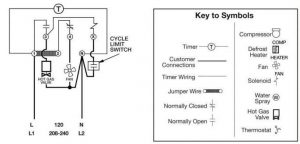
The most common method to defrost appropriately in refrigeration involves both time for initiation and a combination of time and temperature for defrost termination (ending defrost). But why can't we just use temperature or time alone? (You may wonder.) Imagine a common freezer with a designed box temperature of -10°F and a coil temperature of […]
Read more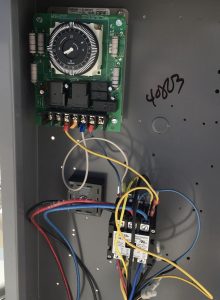
This article is a quick, real-life diagnosis/find by Kalos Services senior commercial HVAC/R tech Eric Mele. Improper Defrost Timer installation While servicing this display cooler for an unrelated problem, I noticed the defrost timer installed in a way that will almost certainly cause early compressor failure. Because this is a cooler (not a freezer), it […]
Read moreVideos:
Podcasts:

Dick Wirz, author of Commercial Refrigeration for Air Conditioning Technicians, talks about making the switch from A/C to refrigeration. Dick Wirz is an advocate for using rules of thumb, which is a controversial position. However, rules of thumb are an excellent way for A/C techs to dip their toes into the refrigeration world. Rules of […]
Read more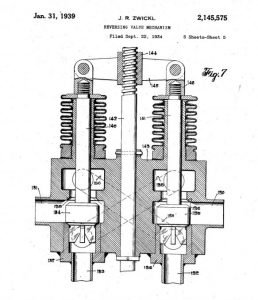
In this episode of HVAC School, Bryan covers the basics of heat pumps. Heat pumps are common technologies in Florida. They reverse the sequence of the typical refrigerant circuit: the indoor coil can become the condenser, and the outdoor coil can become the evaporator. Heat pumps can achieve that transition via a reversing valve, which […]
Read more
In this episode of the HVAC School Podcast, Bryan talks with Jeremy Smith about refrigeration tips, terms and processes. They also cover the similarities and differences between A/C and refrigeration. Being on-call as an A/C tech is not all that different from being on-call as a refrigeration tech. Similarly, the principles of heat transfer don't […]
Read more
